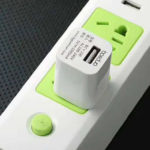When sleeping, the Vietnamese people lay themselves on a firm and spacious bed for the most complete sleep. One difference, when you enter a Japanese-style bedroom, you may not find any beds. In fact, in Japan, most families sleep on the floor. Here are 4 reasons explaining why Japanese people do not sleep in beds.
1. Maximizing space utilization

Japan is famous for being a “small land, many people” country, especially in big cities. This leads to the fact that Japanese houses are usually not spacious. To save space, Japanese people often build thin walls or sliding doors to separate different functional spaces.
They also often turn the living room into a bedroom with a tatami mat – a compact and lightweight type of mat, used for multi-function, to maximize living space.
In addition to the limited land, the characteristics of Japanese houses are quite low, so if a bed is used, an adult standing on it may… touch the ceiling. Because of this lack of space, Japanese people have had to adapt to ensure their quality of life at an acceptable level. When lying directly on the floor, the ceiling will feel higher. When there is no bed, the empty floor area is also larger.
2. Ensuring safety
Japan is a country without the favor of nature, where there are many earthquakes. Therefore, Japanese people have to prepare the best for any possible situation.
Living in this archipelago, feeling the earthquake in time and escaping is very important. To react quickly to earthquakes, Japanese people lie on the floor to feel the shaking most clearly and quickly, and quickly find a safer place. Meanwhile, if you sleep on a bed, this feeling will be much slower and may affect your life in just a delayed moment. Moreover, if there is less furniture in the house, they can quickly escape when an earthquake occurs.
3. Good for health
Many Japanese people believe that if they lie on a too soft bed, it is not good for their bones and joints. The best way to sleep is on a bed with moderate elasticity, not too hard or too soft. According to them, sleeping on a flat and hard surface is good for the back, at the same time, it will help increase blood circulation, because your weight is evenly distributed and less pressure on different parts of the body.
Meanwhile, sleeping on a soft bed, although you will feel comfortable, the mattress can start to sink over time, making your spine bend and leading to back pain. Besides that, sleeping on the floor will reduce the risk of falling for the elderly when they are lying on the bed and want to move to the floor.
Japanese people not only lie on the wooden floor, but they also sleep on a tatami mat or a mattress. Tatami mats are made from dry grass tightly woven together to increase elasticity and create a comfortable feeling. Besides that, the mattress in Japan is not too thick, the pillow is also quite special with a smaller size, the inside is filled with various types of grains. At first, you will feel the pillow is quite hard, not as comfortable as familiar cotton pillows, but this type of pillow is beneficial for your neck and spine.

4. According to traditional culture
The adaptation to life has created habits and formed the sleep culture of the Japanese people. One simple and convincing reason is that the culture of sleeping on the floor has existed for thousands of years in Japan. This habit has been passed down from generation to generation of people in the land of the rising sun. This is one of the main reasons answering why Japanese people do not sleep on beds.
Explore 12 Amazing Destinations for Biking Trips
Unlock Vietnam in a brand new way with an exciting biking tour! Discover the stunning beauty of the country with Dien May XANH’s top 12 must-see destinations. From sweeping plains to clear blue beaches and mountainous vistas – experience all the sights with your own personal cycling tour. Find your ideal route and set out for an adventure today!



































